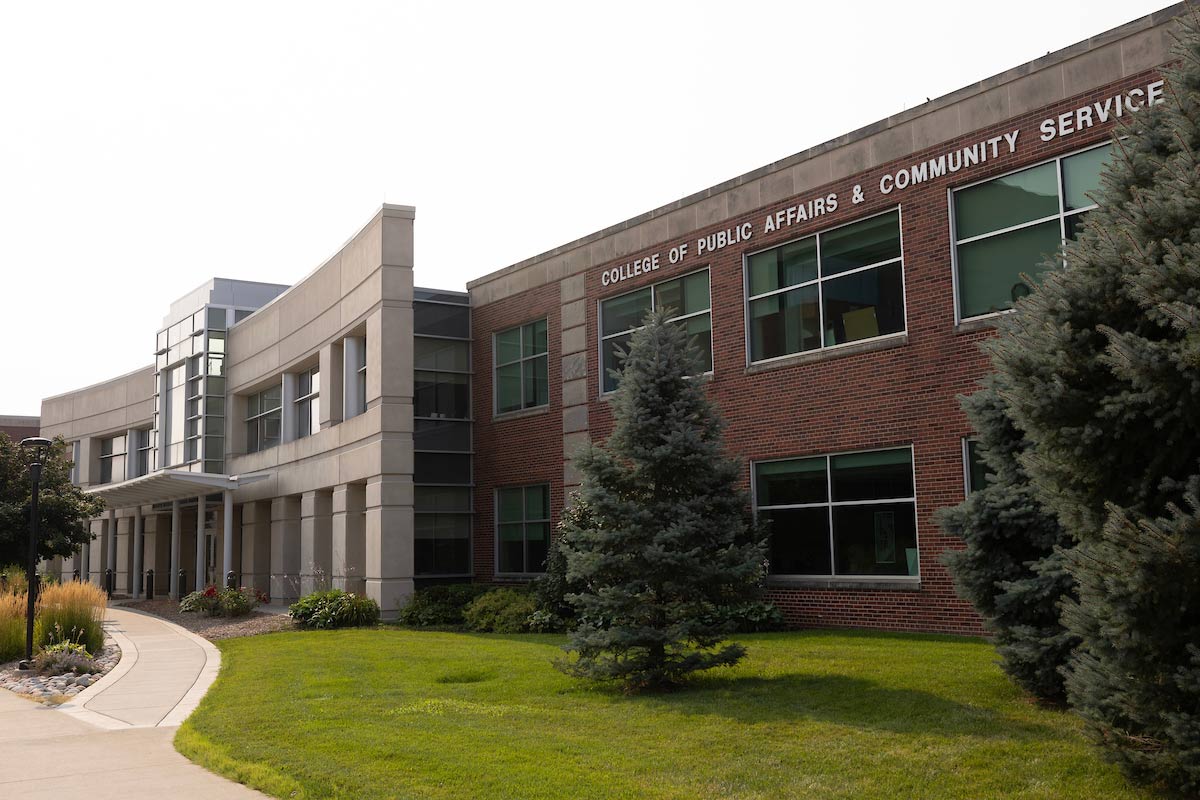UNO Joins Federal Initiative to Prevent Juvenile Crime, Promote Youth Success
The project will focus on holistic care, spanning prevention, tailored interventions, and community reintegration for young people.
- published: 2024/11/26
- contact: Sam Peshek - Office of Strategic Marketing and Communications
- email: unonews@unomaha.edu
- search keywords:
- Crime Prevention
- Juvenile Justice Institute

Highlights
-
UNO Juvenile Justice Institute Assistant Director Monica Miles-Steffens: “A robust continuum of care primarily looks beyond juvenile justice systems. We need systems to work together to provide youth with the support and resources that they need so that they aren’t pushed deeper into the juvenile and criminal justice system.”
-
UNO JJI efforts are focused on supporting Douglas County, Nebraska; Elkhart County, Indiana; and the City of Rockland, Maine.
-
More than $17 million in federal grants have been awarded to 23 jurisdictions around the United States, including Douglas County, NE, to address juvenile crime prevention and intervention.
The University of Nebraska at Omaha (UNO) Juvenile Justice Institute is partnering with JBS International, a company that provides management and technology consulting services for sustainable change in health care, social services, and education, on a U.S. Department of Justice initiative aimed at breaking the cycle of young people stuck in the juvenile justice or child welfare systems.
The Office of Juvenile Justice and Delinquency Prevention (OJJDP) within the U.S. Department of Justice has launched the new initiative, “Building Continuums of Care to Support Youth Success,” providing $17 million in federal grants to twenty-three jurisdictions around the United States to address juvenile crime prevention and intervention.
This continuum of care covers a holistic set of goals and processes to prevent at-risk youth from participating in delinquent behavior or being victimized, intervene with help that is specific to each person’s needs and current situation, and prepare them for successful reintegration into their community.
JJI’s efforts are focused on supporting Douglas County, Nebraska; Elkhart County, Indiana; and the City of Rockland, Maine. It will provide training and technical assistance for those jurisdictions through collaboration from different organizations and experts, with an emphasis on engagement from youth and families who are most impacted by these plans.
JJI Director Dr. Anne Hobbs and Assistant Director Monica Miles-Steffens are distinctly aware of the importance of these efforts and bringing in different voices to make sure that the plans in development are effective.
“A robust continuum of care primarily looks beyond juvenile justice systems. We’re also talking about education, behavioral health, and child welfare,” said Miles-Steffens. “We need systems to work together to provide youth with the support and resources that they need so that they aren’t pushed deeper into the juvenile and criminal justice system.”
The jurisdictions who applied for and received these grants want to improve their local frameworks. Technical assistance through JBS and the other national partners will help guide assessments, collaboration, and plan development. While there have been continuum of care frameworks used around the country for years, what makes this framework unique is the emphasis on hearing from those who have a lived experience in what has or hasn’t worked in these systems.
“The best practice is seeing youth and families as experts, bringing them to the table and paying them as consultants, and working around their work and school schedules,” said Miles-Steffens. “It is also important to provide a feedback loop. So, after sites ask them to participate, they need to go back and discuss the input received and share how it will be incorporated into the site plan. They have direct feedback on how their voice is going to make an impact.”
JJI staff are eager to implement their research and expertise, confident that they are perfectly positioned to assist the initiative.
“For the past decade, Nebraska has been at the forefront of states on this issue. Nebraska has passed out funding that's designed to help youth in the juvenile justice system and prevent them from moving deeper into the system,” said Hobbs. “During that time, the Juvenile Justice Institute was chosen to ensure the effectiveness of the state’s program and evaluate its efforts. Our notable work on this garnered the attention of OJJDP and JBS International, which is why they selected us as one of their partners.”
Hobbs and Miles-Steffens are not only enthusiastic about how they can make a positive impact for the grantees, but also recognize how this work will impact UNO students. They anticipate further OJJDP funding for the next couple of years, allowing them to grow their contribution to the project and bring in UNO student involvement.
“If students can list on their resumes that they worked on a federal grant, that’s a huge win for a graduate student preparing to enter academia or a student gaining experience for a career in this field,” said Hobbs.
Hobbs added, “Beyond that, when students communicate directly with a family or young person within the system, that alone fundamentally changes how they view the impact of their decisions. Even though adding something on your resume is fabulous, when you listen to people and it changes your heart, that can have a longer impact.”
About the University of Nebraska at Omaha
Located in one of America’s best cities to live, work and learn, the University of Nebraska at Omaha (UNO) is Nebraska’s premier metropolitan university. With more than 15,000 students enrolled in 200-plus programs of study, UNO is recognized nationally for its online education, graduate education, military friendliness and community engagement efforts. Founded in 1908, UNO has served learners of all backgrounds for more than 100 years and is dedicated to another century of excellence both in the classroom and in the community.
Follow UNO on Facebook, Twitter (X), Instagram, LinkedIn, and YouTube.